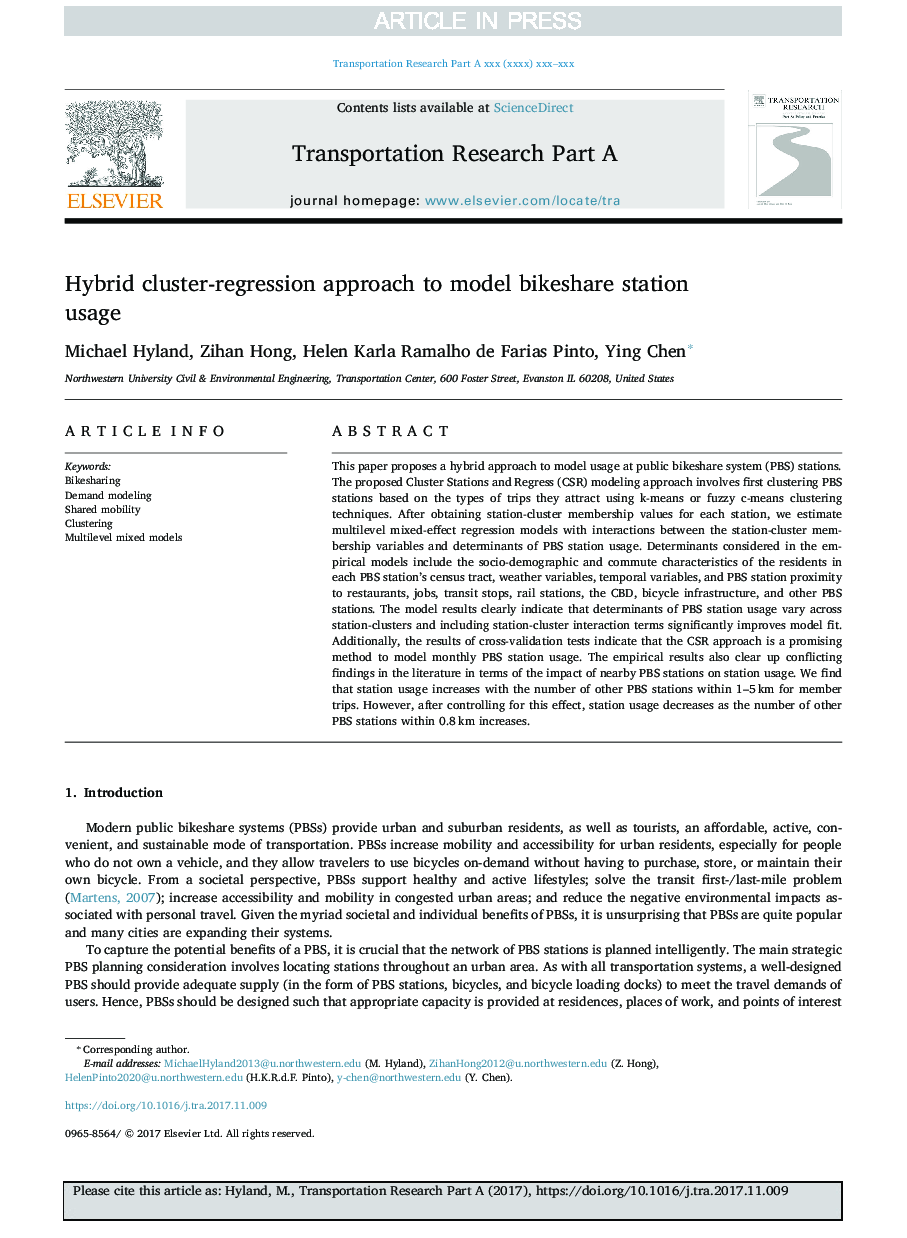| Article ID | Journal | Published Year | Pages | File Type |
|---|---|---|---|---|
| 6779900 | Transportation Research Part A: Policy and Practice | 2018 | 19 Pages |
Abstract
This paper proposes a hybrid approach to model usage at public bikeshare system (PBS) stations. The proposed Cluster Stations and Regress (CSR) modeling approach involves first clustering PBS stations based on the types of trips they attract using k-means or fuzzy c-means clustering techniques. After obtaining station-cluster membership values for each station, we estimate multilevel mixed-effect regression models with interactions between the station-cluster membership variables and determinants of PBS station usage. Determinants considered in the empirical models include the socio-demographic and commute characteristics of the residents in each PBS station's census tract, weather variables, temporal variables, and PBS station proximity to restaurants, jobs, transit stops, rail stations, the CBD, bicycle infrastructure, and other PBS stations. The model results clearly indicate that determinants of PBS station usage vary across station-clusters and including station-cluster interaction terms significantly improves model fit. Additionally, the results of cross-validation tests indicate that the CSR approach is a promising method to model monthly PBS station usage. The empirical results also clear up conflicting findings in the literature in terms of the impact of nearby PBS stations on station usage. We find that station usage increases with the number of other PBS stations within 1-5â¯km for member trips. However, after controlling for this effect, station usage decreases as the number of other PBS stations within 0.8â¯km increases.
Related Topics
Physical Sciences and Engineering
Engineering
Civil and Structural Engineering
Authors
Michael Hyland, Zihan Hong, Helen Karla Ramalho de Farias Pinto, Ying Chen,
